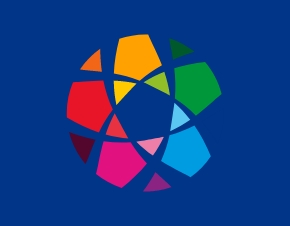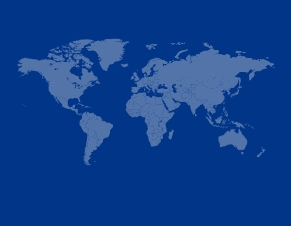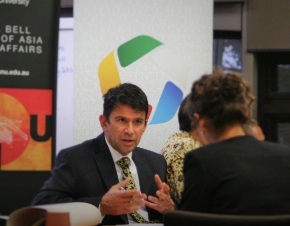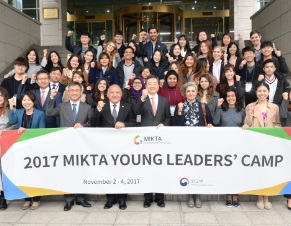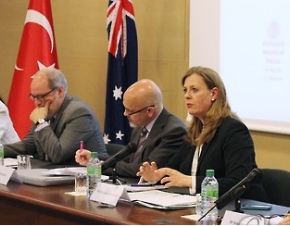Summary of MIKTA Dialogue, 1ST MIKTA Young Professional Camp(July 8, 2015, Seoul)
1ST MIKTA Young Professional Camp
July 8 2015, Seoul
1. The inaugural MIKTA Young Professional Camp was held in Seoul, the Republic of Korea, on 6 ? 11 July 2015. The meeting was attended by 49 young professional fellows and 5 faculty representing Mexico, the Republic of Indonesia, the Republic of Korea, Turkey and Australia.
2. Fellows and faculty discussed enhancing the visibility of MIKTA, its cooperative projects and the way forward for MIKTA cooperation.
3. Fellows acknowledge the long term goals outlined at the fifth MIKTA Foreign Ministers’ Meeting taking particular note of transnational issues: climate change and environmental policy, cyber security and internet governance, terrorism, and nuclear nonproliferation.
4. Fellows endorse the promotion of cultural understanding between MIKTA member states.
The product of the dialogue are the following proposals for consideration:
5. Fellows recommend that MIKTA establishes a social media team. This will facilitate a strong online presence with representatives from all MIKTA member states.
6. Fellows advocate for the appointment of a cultural advisor from each MIKTA member state. The advisors should accompany Foreign Ministers and conduct parallel meetings to ensure that a cultural response is established alongside the official dialogue. The purpose of these meetings is to organize and implement the programs suggested.
7. Fellows suggest that the dialogue should extend beyond the Foreign Ministry of the MIKTA member states. We recommend that the dialogues include the Ministries of Defense, Education, Trade, Culture and Tourism. MIKTA should seek to broaden their areas of engagement as new issues of concern arise.
8. Fellows recognize the importance of continued collaboration among MIKTA fellows. We propose the establishment and consolidation of a MIKTA Alumni Young Professional’s network. This will ensure continued engagement and dialogue with respect to relationship building between the five MIKTA member states.
9. Fellows recommend that MIKTA member states update the official website to present the information in the five official languages of the members. The goal is to reflect language diversity, which will increase information accessibility and dissemination.
10. In an effort to promote the widespread communication of MIKTA and its partnership beyond official channels, fellows endorse a dialogue on the feasibility of implementing a sports diplomacy program.
11. Fellows suggest an annual MIKTA cultural festival to promote understanding between the five MIKTA member states. This would include, but is not limited to: film festivals, lecture series, cultural competitions and exhibitions, historical displays and art sharing exchange programs.
12. Fellows recommend the establishment of a forum and knowledge-sharing program that engages young entrepreneurs. This will enhance innovation and cooperation between future business leaders of MIKTA member states.
13. Fellows envisage that the above recommendations for relationship building will lay the groundwork for the establishment of MIKTA studies centers. This will engage next generation academics in the exchange of innovative research ideas on the issues identified by MIKTA. The aim of this endeavor is to produce tangible research outputs including articles, special issue journals and social media commentary.
14. Fellows suggest that MIKTA forms a series of workshops on the issues of science and technology.
15. Fellows endorse the development of a forum for the discussion of best practice in the area already formally outlined in point three.
Fellows anticipate that these programs will help to build a network of cooperation, a comprehensive vision and a strong MIKTA profile. This will facilitate the legitimacy, viability and visibility of MIKTA in the international society.
These relationships will facilitate the long term development of a more efficient and legitimate global governance structure with the capacity to manage pressing global issues as they emerge.
Fellows deeply appreciate the contributions of our guest speakers, officials and faculty.
Fellows thank the Ministry of Foreign Affairs of the Republic of Korea and the Korea Foundation.

